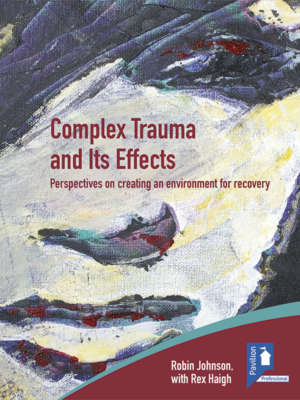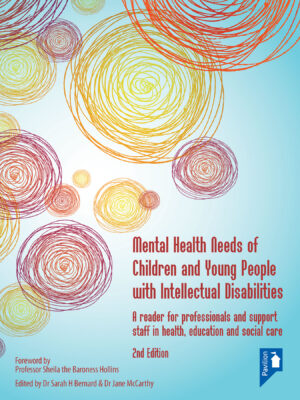Description
Working in forensic services requires clinicians to deal with complex trauma on both a professional and personal basis. Professionally, they must care for and rehabilitate people who have not only experienced trauma but also behaved in traumatic ways toward others. And on a personal level, they are inevitably touched by this trauma – by reliving it in dialogue, or by observing its effects. A key challenge they face is to build strong therapeutic relationships with those for whom past relationships have faltered and often become incendiary. Innovative Practice in Forensic Settings explores issues of how to simultaneously hold in mind risk, safety and vulnerability, and how to maintain a capacity to think alongside a capacity to feel. Focusing on a relational and contextual understanding of trauma and offending, the chapters explore how to make use of a CAT approach across different forensic settings, clinical presentations and services.
Audience
Professionals working in the criminal justice and forensic systems including psychologists, psychiatrists, nurses, social workers, occupational therapists, psychotherapists, educators and prison officers; service managers, consultants and others concerned with providing or helping others to promote reflective practice.
Authors
Jenny Marshall is a consultant clinical psychologist, CAT practitioner, supervisor and trainer. She has worked in forensic services for over twenty years before moving to her current role as Joint Trustwide Lead for CAT in Tees Esk and Wear Valley NHS Trust. Her interest in using CAT concepts to work with staff in forensic services led to hosting the first national conference on Shared Thinking Space in 2019. She has a particular interest in how a relational model can help influence culture at a leadership level. She also works part time in private practice and is part of the training team for the Catalyse Practitioner Course.
Jamie Kirkland is a consultant clinical psychologist, CAT practitioner, supervisor and trainer. He works in Edinburgh where he is team lead for a community intellectual disability forensic service. He is interested in the application of CAT in team, consultancy and creative settings. He performed with Steve Potter at the Edinburgh Fringe once.
Content
Foreword by Katharine Russell
Part 1: CAT Concepts in Forensic Work
1. The CAT model in forensic services (Editors)
2. Psychological safety in forensic settings – What can a CAT model offer? (Editors)
3. Micro-narcissism –Mapping moments of inflated or deflated ideas and overvalued or devalued roles in our work (Steve Potter)
4. Understanding the CAT model of trauma –A beginner’s guide to the Multiple Self State Model (David Harvey)
Part 2: Applying Concepts to Specific Settings
5. The need for a multi-agency approach to working with offenders – the MAPPA approach (Rajan Darjee, Joe Judge & Jamie Kirkland)
6. Multi-agency working – It’s all about the relationship (Rajan Darjee, Joe Judge & Jamie Kirkland)
7. Using CAT to enhance agency and engagement (Claire Browne)
8. Using CAT in prisons (Abigail Willis & Clare Ogilvie)
9. Using CAT with Young People–Relationships, the real keys to YOI (Caroline Wyatt)
10. The use of CAT in offender personality disorder pathways (Andrea Daykin & Sue Ryan)
11. CAT, gender and neurodiversity (Philip Clayton, Lucy Morris, Clare Edmunds & Pam Mount)
12. The use of CAT with women (Lindsey Jones & Phyllis Annesley)
Part 3: The Bigger Picture
13. CAT and trauma-informed care (Lawrence Jones)
14. Reciprocal roles between therapies –a dialogue (Lawrence Jones)
15. Commissioning and quality in forensic services (David Harvey)
16. Inequality and power differentials in forensic contexts: considering the territory through a CAT lens (Rhona Brown, David Harvey & Lucinda Bolger)
17. Inequality and power differentials in forensic contexts – maintaining dialogue across painful spaces using CAT (Rhona Brown, David Harvey & Lucinda Bolger)
18. Concluding thoughts and reflections in dialogue (Jenny Marshall and Jamie Kirkland)
Details
Publisher: Pavilion Publishing and Media Ltd
ISBN: 9781803883366
Publication Date: 28th June 2024
Page count: 320






Prof John Crichton PhD (Cantab) FRCPsych FRCPE Consultant Forensic Psychiatrist Treasurer Royal College of Psychiatrists –
Innovative Practice in Forensic Settings, edited by Jenny Marshall and Jamie Kirkland, is a groundbreaking text that explores the application of Cognitive Analytic Therapy (CAT) within the complex and often challenging landscape of forensic settings. This book offers an in-depth examination of how relational and therapeutic frameworks can transform practices in environments traditionally dominated by security measures, rigid procedures, and punitive approaches. This work marks the second collaboration between Marshall and Kirkland, following the success of their first book, Reflective Practice in Forensic Settings, published in 2021. Their continued partnership enriches this text, building on their established commitment to promoting reflective and relational approaches in forensic work. Additionally, Innovative Practice in Forensic Settings updates much of the material that was introduced in Pollock et al.’s Cognitive Analytic Therapy for Offenders (2006), providing fresh insights and expanding on previous concepts with new research and case examples.
From the outset, the editors set a thoughtful tone, emphasising the necessity of relational approaches that are grounded in empathy and understanding. They manage to strike a delicate balance between theoretical exploration and practical application, making the book accessible to both seasoned professionals and those new to the concepts of CAT. Each chapter is thoughtfully curated to provide readers with real-world examples, reflective case studies, and expert commentary on navigating the intricate dynamics between practitioners and clients in forensic settings.
One of the book’s stengths is the diverse array of perspectives it includes. Contributors from various professional backgrounds discuss how CAT principles have been integrated into work with individuals in prisons, secure hospitals, and community services. This multifaceted approach ensures a comprehensive understanding of the challenges and rewards of applying CAT in environments where safety, boundaries, and risk are key.
The text delves into topics such as understanding maladaptive relational patterns, managing risk through relational awareness, and addressing the psychological needs of clients who may have committed serious offenses. Practical strategies and interventions are presented in a way that invites reflection and adaptation to different contexts. The case studies are especially compelling, demonstrating how CAT interventions can lead to meaningful change, even in cases where hope initially seems limited.
Marshall and Kirkland acknowledge the inherent difficulties faced by practitioners working in forensic settings. The book is honest about the emotional toll of such work and provides guidance on self-care, supervision, and maintaining professional resilience. This focus on the well-being of practitioners is a refreshing and essential aspect of the text.
Overall, Innovative Practice in Forensic Settings is an invaluable resource for professionals working in forensic psychology, psychiatry, probation, or social work. It is a must-read for those interested in developing relationally effective practices that prioritize compassion without compromising safety and accountability. This book not only enhances our understanding of how CAT can be effectively employed in challenging environments but also serves as an inspiring call to reimagine forensic practice in a more humanistic and connected way.’